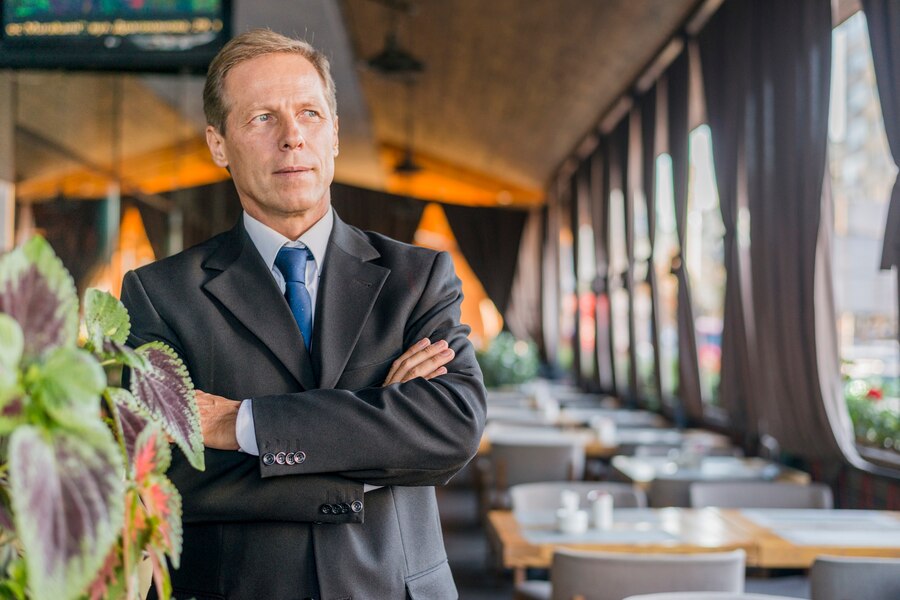Introduction to kevin mccarthy and his political career
kevin mccarthy’s journey through the political landscape has been nothing short of remarkable. From his early days as a small-town politician to becoming one of the most influential figures in Congress, McCarthy’s ascent is a testament to both determination and strategy. As he stands on the brink of potentially becoming Speaker of the House, many are eager to understand how this once-unknown Congressman transformed into a key player in American politics. His story intertwines with challenges, controversies, and an undeniable rise within the Republican Party that not only captivates supporters but also raises eyebrows among critics. What led Kevin McCarthy down this path? Buckle up as we explore his life, career, and what might lie ahead for him on Capitol Hill.
Early life and background of kevin mccarthy
kevin mccarthy was born on January 26, 1965, in Bakersfield, California. Growing up in a working-class family shaped his perspectives and ambitions early on.
His father ran a small business while his mother was an educator. This environment instilled strong values of hard work and community service.
McCarthy attended California State University, Bakersfield, where he earned a degree in political science. His college years fueled his interest in politics and leadership.
After graduation, he ventured into the private sector before making the leap into public service. His grassroots connections helped him build a network that would prove invaluable later.
These formative experiences laid the groundwork for McCarthy’s future endeavors as he navigated through various roles within local government before setting his sights on Congress.
Entry into Congress and rise to leadership positions
kevin mccarthy made his mark in Congress when he was elected to represent California’s 22nd district in 2007. His approach was characterized by a blend of pragmatism and ambition, which quickly caught the attention of party leaders.
As a freshman member, he focused on building relationships and understanding the legislative process. This strategy paid off as he steadily climbed the ranks within the Republican Party.
By 2014, McCarthy became House Majority Whip, where he played a crucial role in rallying votes for key legislation. His efforts were noted for their effectiveness during tumultuous times.
In 2015, following John Boehner’s resignation, McCarthy sought to be Speaker but withdrew amid controversy. However, this setback didn’t deter him; instead, it solidified his resolve to lead.
His resilience positioned him favorably within GOP circles as they navigated shifting political landscapes.
Controversies and challenges faced by McCarthy
kevin mccarthy’s journey hasn’t been without its hurdles. As a prominent figure in GOP leadership, he has faced significant scrutiny over various controversies.
One notable challenge was his handling of the January 6 Capitol riots. Initially downplaying the event, McCarthy later shifted his stance, which left many questioning his consistency and integrity.
He also grappled with intra-party divisions. Navigating between traditional conservatives and more radical factions often placed him in a precarious position. His attempts to unify these groups have met resistance at times.
Additionally, McCarthy has been criticized for aligning himself closely with Donald Trump during turbulent moments. This connection has both bolstered and threatened his standing within different Republican circles.
These challenges have tested McCarthy’s political acumen but also shaped his approach as he aims for higher office within Congress.
Potential reasons for his rise in popularity within the Republican Party
kevin mccarthy’s ascent within the Republican Party can be attributed to several key factors.
First, his ability to connect with grassroots voters has set him apart. He often uses social media effectively, resonating with a base that values authenticity and direct communication.
Second, McCarthy’s strategic alliances have bolstered his standing. By fostering relationships across various factions within the party, he has positioned himself as a unifier in an era of division.
Additionally, his track record on critical issues appeals to conservatives seeking strong leadership. His stances resonate well with those prioritizing economic growth and national security.
McCarthy’s adaptability is noteworthy. He navigates shifting political landscapes while maintaining core principles—an essential trait for any leader aiming for wide-ranging support among party members.
Comparison to previous Speaker of the House, Paul Ryan
kevin mccarthy and Paul Ryan share a common trajectory within the Republican Party, yet their leadership styles diverge significantly.
Ryan was known for his policy-driven approach, focusing on issues like tax reform and entitlement programs. His tenure emphasized a vision of fiscal conservatism that resonated with traditional Republicans.
In contrast, McCarthy has adopted a more pragmatic style. He often prioritizes party unity over strict ideological lines. This adaptability might be key in navigating the current political landscape where divisions run deep.
While Ryan’s time as Speaker faced challenges from both moderates and hardliners, McCarthy appears to have cultivated stronger relationships across varying factions within the GOP.
This ability to engage different viewpoints could play a crucial role in shaping his effectiveness as Speaker if he ascends to that position. The dynamics of their leadership reflect broader shifts within the party itself during turbulent political times.
Future prospects for McCarthy and his potential as Speaker of the House
kevin mccarthy’s future in politics is a topic of intrigue. As he positions himself for the role of Speaker of the House, his strategic moves will be crucial.
His ability to unite various factions within the Republican Party can play a significant role. With internal divisions often surfacing, McCarthy’s leadership style may help bridge gaps and foster collaboration.
Moreover, navigating current issues like budget negotiations and policy reforms could solidify his standing among peers. His experience as Minority Leader has equipped him with valuable insights into legislative processes.
Public perception also matters. If he continues to resonate with voters, it might bolster his chances for election as Speaker.
Engaging directly with constituents through town halls or social media could enhance his visibility and support base.
As circumstances evolve, so too will McCarthy’s path toward potentially holding one of the most powerful positions in Congress.
Feli Fayer: The Rising Star Transforming the Art Scene
The impact of celebrity status on his political career
kevin mccarthy’s rise in politics has been intertwined with his ability to navigate the celebrity landscape. In an age where media presence can significantly influence public perception, McCarthy has successfully utilized platforms like social media.
His approachable demeanor resonates with many Americans. This connection often transcends traditional political boundaries. By engaging with constituents online, he cultivates a more personal relationship that politicians of previous generations rarely achieved.
Moreover, celebrity endorsements have helped bolster his profile within the Republican Party. High-profile supporters amplify his message and reach wider audiences, attracting new voters who might not typically engage in politics.
As Republicans look for leaders who can connect beyond party lines, McCarthy’s blend of political acumen and celebrity appeal puts him at an advantage. He stands out as a figure capable of bridging gaps and fostering broader support among diverse voter groups.
Conclusion: Will kevin mccarthy become the next Speaker of the House?
kevin mccarthy’s journey from a local politician to the Speaker of the House is both remarkable and complex. His early life laid a solid foundation for his political ambitions, showcasing resilience and determination. Entering Congress marked the beginning of an upward trajectory filled with leadership roles that cemented his place in Republican politics.
While McCarthy has faced controversies that challenged his authority and decision-making, he has navigated these hurdles skillfully. His ability to adapt has resonated with many within the Republican Party, boosting his popularity at crucial moments.
Comparatively, when looking back at Paul Ryan’s tenure as Speaker, it becomes clear that McCarthy embraces a different approach—one more attuned to today’s political climate. This shift may be what many Republicans are seeking in their next leader.
The allure of celebrity status cannot be overlooked either; it plays a significant role in modern politics. As social media continues to shape public perception, how politicians engage with their audiences can determine their viability for higher office.
As discussions intensify around future leadership positions within Congress, all eyes remain on kevin mccarthy. Will he rise to become the next Speaker of the House? The landscape is changing rapidly; only time will reveal whether he can secure this influential position amidst evolving party dynamics and voter expectations.










